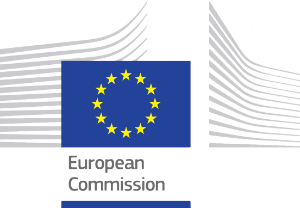As part of the “Museum in Questions” campaign initiated in the fall of 2021, the Royal Museums of Fine Arts of Belgium are eager to join the debate on current social issues
Organisation in charge of best practice
Royal Museums of Fine Arts of Belgium
Location
Brussels
Dates
Biennal: Exhibition time -21.08.2023 with activities starting from autumn 2021
Description
As part of the “Museum in Questions” campaign initiated in the fall of 2021, the Royal Museums of Fine Arts of Belgium are eager to join the debate on current social issues. Two exhibition rooms contextualize two burning topics for museums around the world: on the one hand, they shed scientific light on the issues of colonialism and diversity, and on the other hand, on the problem of the restitution of cultural goods looted during the Second World War. The Royal Museums aspire to be a laboratory for reflection that will enable us to participate in the construction of the museum of tomorrow, insisting on how scientific research, one of the museum’s primary missions, can contribute to the contemporary debate.
One exhibition room focuses on the complex issue of looted artworks, particularly those taken during World War II. The process of identifying such works involves thorough provenance research, which can be challenging but is essential for restitution.
Another room addresses the responsibility of museums to be inclusive and non-discriminatory, exemplified by the renaming of a Rubens masterpiece. This action reflects the museum’s commitment to fostering a scientifically based debate, acknowledging historical facts and contexts, and responding to public reactions.
In summary, the Royal Museums of Fine Arts of Belgium are using these exhibitions as a platform for reflection and dialogue on important social and historical issues, demonstrating the role of museums as more than just repositories of art, but as active participants in societal discourse.
Links
Resources needed
Works of art: The museum would need to have access to works of art that are related to the topic to be addressed. Research: Extensive scientific research would be needed to shed light on the issues of colonialism and diversity, and the restitution of cultural property. This research would form the basis of the exhibitions.
Challenges encountered
The main challenge is to be able to count on the facilities at the political level from the management areas of the museums to open dialogue to controversial social issues. The next challenge is to design a speech appropriate to the understanding of the general public in order to communicate the importance of topics such as decolonization in museums without offending the collective's sensitivities.
Evidence of success
Provenance investigation: A team of experts would be needed to investigate the provenance of artworks, particularly those of questionable origin. This is a laborious task but essential to the restitution process. Information panels: Detailed information panels would be needed to provide context and answer questions about the artworks and topics being addressed. Inclusive policies: The museum would need to implement inclusive policies to ensure that exhibitions are non-discriminatory and responsive to public reactions. Facilitation of dialogue: Resources would be needed to facilitate constructive dialogue around the issues raised by the exhibitions. This could include guided tours, discussion forums or interactive exhibits.
Potential for transfer
The initiative can be adapted to museums that have in their collections works obtained under conditions similar to those of this museum. The initiative to address a controversial topic requires, for its adaptation to different museums or institutions, the support of the management and an adequate museography in terms of respectful discourse. In the case of discussion sessions, it is essential for their adaptation to count experts on the topics as spikers.
Further Information
This Best Practice was identified by Arte Sostenible during study visits in Brussels by ReInHerit Horizon 2020 CSA partners in May 2023.
Get in touch
Click here to send us an email, if you have any question or comment on this best practice.

